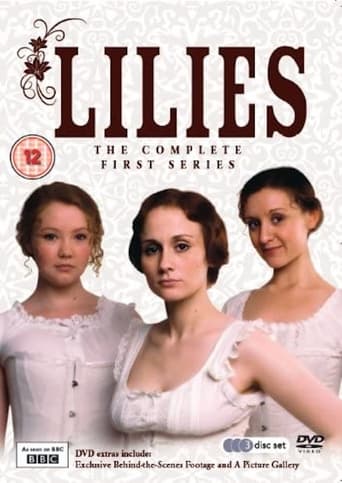varmitydog
I came across this at the small local library near where I live and it had such a high imdb rating that I had to check it out---and I'm glad I did.Connected stories of a families troubles in England, 1920. It was so well written that you find yourself rooting for the different characters, and their setbacks tug at your emotions. Looking at the film extra's section after I viewed it, I was surprised to see how they made the set because it all seemed so realistic. I never was one for ladies hat's, but whomever picked out the hats for the ladies in this picked out some very flattering ones, and it makes one wonder what happened to hats as a ladies fashion accessory.The only thing unrealistic about this show is that these people are all supposed to be related but they look so very different from each other.
emuir-1
In the 70's the film industry, BBC North and Granada TV regularly churned out gritty working class dramas of the struggling poor. Sam, A Raging Calm, Room at the Top, Saturday night and Sunday Morning, A Kind of Loving, and the one which satirized them all - Brass, in which Timothy West played a flint hearted millowner who begrudged his workers the cotton dust they took home in their lungs. The modern day characters worked in menial jobs and lived for the Saturday Football match and the night at the dance and the pub. The period characters were a pawn shop away from the workhouse. Parents died and the children were sent to the orphanage. Lovers could not afford to wed and pregnancy out of wedlock brought shame to the family.All these old clichés return in 'Lilies' a period drama about three young women coping with life in a working class port city. I am no lover of Downton Abbey and its clones, as I am well aware that the lives of the young women in Lilies was the norm for the vast majority. Only a small percentage of the people had means. For the rest it was a daily grind and struggle for survival. Little touches brought back memories for me, the closeness of the neighbors helping with bereavement and hardship, and the front parlor kept for best and only used for laying out the dead and receptions after the funeral. Growing up in northern England in the forties, there were many people around who had lost someone in WWI and a staggering number of widows and single mothers.Of the performances, two actors irritated me beyond words, the father who seemed to be overacting, and Ruby, his daughter who was a little too brassy and mouthy for my taste. The handsome priest, Father Melia was just a little too handsome for the job. I shuddered when Iris was combing the nits out of his hair. The series did portray the division between Catholics and Northern Irish Protestants very well. Unless you grew up in that environment, it is hard to understand today that neither could enter a church of the other faith without condemning their immortal soul to hell for ever more.
Sidhetaur
I was totally drawn in from the first episode. The spirited Moss family, so much like my own family was that believable. It was written from the reminisces of a grandmother of her family and that is probably why it rang so true. This is one of those shows that so deserved a much longer run that it is a travesty that it was not given one. What WAS made is a gem to be savored for eight episodes.
Eileen O'Brian
This is one of the most fascinating a series and it drew me in 100%. You cheer and cry for the characters, often in the same episode. Well cast, extremely well acted and directed, it portrays living in Liverpool right after WWI. I am SO hoping to find a copy of Season 2, and it would be a terrible shame if only two seasons were made.
